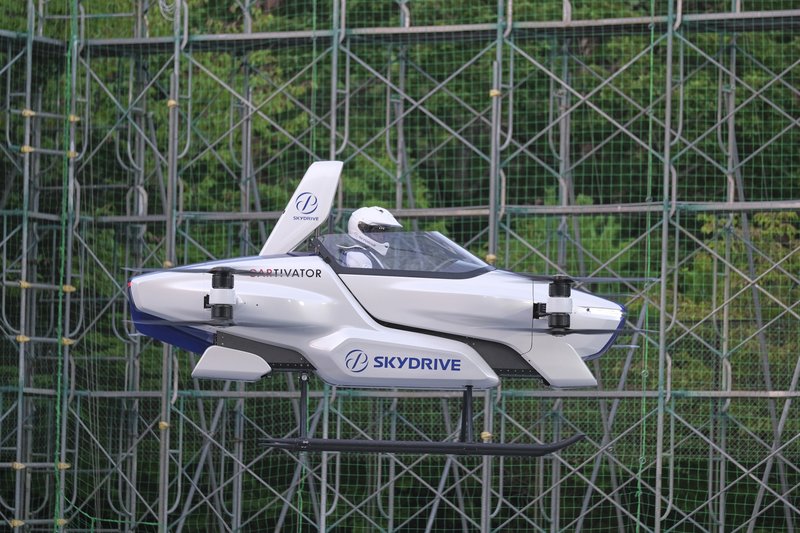Japan's SkyDrive, among the countless companies with "flying car" projects around the world, has implemented a successful, albeit modest, one-person test flight on the eVTOL vehicle.
In a video shown to journalists on Friday, a strange gadget resembling a slick motorbike with propellers rose several feet off the ground and hovered in a mesh area for four minutes.
Tomohiro Fukuzawa, who heads the SkyDrive effort, said he hoped the "flying car" would become a realistic product by 2023, but acknowledged that making it safe was crucial.
"Of the more than 100 flying car projects in the world, only a few have succeeded in flying with a person on board," he told the Associated Press. "I hope a lot of people want to ride in it and feel safe."
Fukuzawa said the machine could so far only fly for five to 10 minutes, but if it could reach 30 minutes, it would have greater potential.
Challenges
Battery sizes, air traffic control, and other infrastructure issues are among the many potential challenges to its commercialization.
"A lot of things have to happen," said Sanjeev Singh, a professor at Carnegie Mellon University's Institute of Robotics, who co-founded Nair Earth Autonomy, near Pittsburgh, and who is also working on the E-Vitol aircraft.
He explained that this flying vehicle "if it costs $ 10 million, no one will buy it. If it flies for five minutes, no one will buy it," adding, "If it falls from the sky often, no one will buy it either."
The "SkyDrive" project began as a volunteer project called "Cartivator" in 2012, with funding from major Japanese companies including car maker "Toyota", electronics company "Panasonic", and video game developer "Bandai" Bandai Namco.

